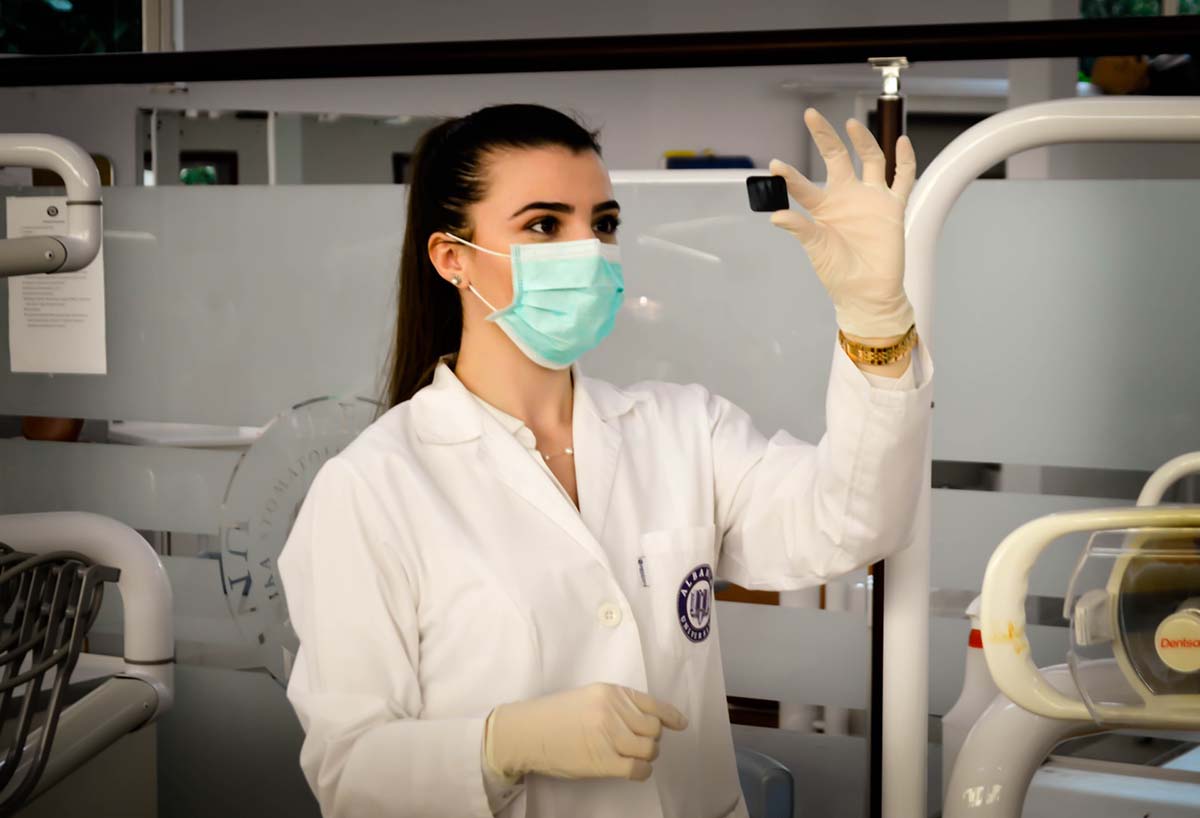What is Healthcare Innovation?
Healthcare innovation is defined as the process of introducing new ideas, methods, technologies, products, or services with the aim of improving healthcare delivery, patient outcomes, and overall efficiency within the healthcare industry. It encompasses a wide range of advancements across various sectors within healthcare, including medical devices, pharmaceuticals, biotechnology, information technology, telemedicine, digital health solutions, and more.
Healthcare innovation often involves addressing challenges and opportunities in areas such as disease prevention, diagnosis, treatment, patient care, and healthcare administration. It can lead to groundbreaking discoveries, improvements in medical procedures, enhanced patient experiences, and cost savings for healthcare providers and patients alike.
Innovations in healthcare can come from diverse sources, including research institutions, academic centers, private companies, startups, government initiatives, and collaborations among multiple stakeholders. The adoption of innovative technologies and practices is essential for driving progress in healthcare and addressing the evolving needs of patients and healthcare systems. As an SEO analyst, it’s important to understand healthcare innovation trends and developments to effectively optimize content and strategies for relevant audiences within the healthcare sector.
Digital Innovations in Healthcare: 8 Examples
Here are some examples of healthcare innovation:
- Telemedicine and Telehealth Platforms: These platforms enable patients to consult with healthcare providers remotely, through video conferencing or other digital communication channels. Telemedicine has seen significant growth, especially during the COVID-19 pandemic, offering convenient access to healthcare services while reducing the need for in-person visits.
- Artificial Intelligence (AI) in Healthcare: AI technologies are being used for various purposes in healthcare, including medical imaging analysis, predictive analytics for patient outcomes, personalized medicine, and virtual health assistants. AI has the potential to improve diagnostic accuracy, treatment planning, and patient care efficiency.
- Digital Health Wearables and Sensors: Wearable devices and sensors, such as fitness trackers, smartwatches, and continuous glucose monitors, provide real-time health data to users and healthcare professionals. These technologies empower individuals to monitor their health metrics and allow for early detection of health issues.
- Precision Medicine: Precision medicine involves tailoring medical treatment and interventions to individual characteristics, such as genetic makeup, lifestyle factors, and environmental influences. Advances in genomics, molecular diagnostics, and bioinformatics have enabled the development of personalized therapies for various diseases, including cancer and rare genetic disorders.
- 3D Printing in Healthcare: 3D printing technology is being utilized to create customized medical devices, prosthetics, implants, and anatomical models for surgical planning. This innovation enables faster production, cost-effectiveness, and improved patient outcomes through personalized solutions.
- Blockchain Technology for Healthcare: Blockchain technology offers secure, transparent, and decentralized systems for managing healthcare data, such as electronic health records (EHRs), patient consent management, and supply chain logistics. Blockchain can enhance data interoperability, privacy, and security in healthcare transactions and information sharing.
- Robotic Surgery: Robotic-assisted surgical systems allow surgeons to perform minimally invasive procedures with enhanced precision, dexterity, and control. These systems offer benefits such as reduced trauma, faster recovery times, and improved surgical outcomes for patients.
- Virtual Reality (VR) and Augmented Reality (AR) in Healthcare: VR and AR technologies are being used for medical training, patient education, pain management, and therapeutic interventions. These immersive technologies create realistic simulations and experiences to enhance learning and rehabilitation processes.
These examples illustrate the diverse range of innovations transforming the healthcare industry, improving patient care, and driving advancements in medical research and practice. As an SEO analyst, understanding these innovations can help in creating relevant and engaging content targeted toward healthcare professionals, patients, and other stakeholders.
Learn more: What is Performance Management in Healthcare?
Healthcare Innovation Advantages
Healthcare innovation offers numerous advantages that contribute to improving patient outcomes, enhancing healthcare delivery, and driving positive impacts across the healthcare ecosystem. Here are some key advantages of healthcare innovation:
1. Improved Patient Outcomes
Healthcare innovation leads to advancements in medical treatments, diagnostic techniques, and preventive measures, resulting in better patient outcomes. Innovations such as precision medicine, personalized therapies, and medical devices contribute to more effective and tailored healthcare interventions.
2. Enhanced Quality of Care
Innovative healthcare technologies and practices enable healthcare providers to deliver higher-quality care to patients. Digital health solutions, telemedicine platforms, and decision support systems improve care coordination, clinical decision-making, and patient safety, ultimately enhancing the overall quality of care.
3. Increased Access to Healthcare
Healthcare innovation expands access to healthcare services, particularly for underserved populations, remote communities, and individuals with limited mobility or transportation options. Telemedicine, mobile health apps, and community health initiatives overcome geographical barriers and improve healthcare accessibility.
4. Cost Savings and Efficiency
Innovations in healthcare technology and processes lead to cost savings and operational efficiency for healthcare organizations. Digital health solutions streamline administrative tasks, reduce medical errors, optimize resource allocation, and minimize unnecessary procedures, resulting in lower healthcare costs and improved financial sustainability.
5. Empowerment of Patients
Healthcare innovation empowers patients to take an active role in managing their health and wellness. Patient-centered technologies such as wearable devices, mobile health apps, and online health portals provide individuals with access to health information, self-care tools, and personalized health insights, fostering greater engagement and autonomy in healthcare decision-making.
6. Faster and Accurate Diagnosis
Advanced diagnostic technologies and artificial intelligence algorithms enable faster and more accurate diagnosis of medical conditions, leading to earlier detection and intervention. Innovations in medical imaging, laboratory testing, and molecular diagnostics improve diagnostic precision, reduce diagnostic delays, and facilitate timely treatment planning.
7. Preventive Healthcare and Population Health Management
Healthcare innovation emphasizes preventive measures and population health management strategies to address healthcare challenges proactively. Digital health interventions, predictive analytics, and risk stratification tools identify at-risk populations, promote healthy behaviors, and prevent the onset of chronic diseases, ultimately reducing healthcare costs and improving public health outcomes.
8. Research and Development Advancements
Healthcare innovation drives research and development advancements in medical science, biotechnology, and pharmaceuticals. Breakthrough discoveries, novel therapies, and medical breakthroughs result from ongoing innovation efforts, leading to continuous improvement in healthcare practices and patient care.
9. Global Health Impact
Healthcare innovation has the potential to address global health challenges and disparities by disseminating life-saving interventions, medical technologies, and best practices worldwide. Collaborative efforts in healthcare innovation foster cross-border partnerships, knowledge sharing, and capacity building to improve health outcomes on a global scale.
10. Competitive Advantage and Market Differentiation
Healthcare organizations that embrace innovation gain a competitive advantage in the marketplace by offering cutting-edge services, attracting patients, and retaining top talent. Innovation-driven organizations differentiate themselves by delivering high-quality, patient-centric care and staying ahead of evolving healthcare trends and consumer preferences.
Overall, healthcare innovation plays a crucial role in advancing healthcare delivery, promoting public health, and improving the well-being of individuals and communities. By harnessing the power of innovation, healthcare stakeholders can drive positive change and shape the future of healthcare for generations to come.
Healthcare Innovation Challenge
The healthcare industry faces various challenges that require innovative solutions to overcome. Here are some key healthcare innovation challenges:
- Access to Healthcare: Many individuals, especially in underserved communities or rural areas, face barriers to accessing quality healthcare services. This challenge includes issues such as geographic distance, transportation limitations, financial constraints, and shortages of healthcare providers.
- Cost of Healthcare: Healthcare costs continue to rise, placing financial strain on individuals, families, employers, and governments. Rising costs contribute to healthcare disparities, affordability issues, and challenges in achieving universal healthcare coverage.
- Chronic Disease Management: Chronic diseases such as diabetes, cardiovascular diseases, cancer, and respiratory conditions pose significant challenges for healthcare systems worldwide. Effective management of chronic diseases requires comprehensive care coordination, patient engagement, lifestyle interventions, and preventive measures.
- Healthcare Delivery Models: Traditional healthcare delivery models may not always meet the evolving needs of patients and providers. Innovations in healthcare delivery, such as telemedicine, home-based care, and community health initiatives, are needed to improve access, efficiency, and patient outcomes.
- Data Privacy and Security: Healthcare organizations must navigate complex regulatory requirements and safeguard sensitive patient data from cybersecurity threats and breaches. Maintaining patient privacy and data security while leveraging digital technologies and health information systems is a critical challenge for healthcare innovation.
- Healthcare Workforce Shortages: Shortages of healthcare professionals, including physicians, nurses, and allied health professionals, pose challenges for healthcare delivery and access to care. Addressing workforce shortages requires investment in education, training, recruitment, and retention strategies.
- Healthcare Disparities: Disparities in healthcare access, quality, and outcomes persist among different population groups, including racial and ethnic minorities, low-income individuals, and rural communities. Healthcare innovation must prioritize equity, diversity, and inclusion to address these disparities effectively.
- Aging Population and Long-Term Care: The aging population presents unique healthcare needs and challenges, including age-related chronic conditions, disabilities, and long-term care requirements. Innovations in geriatric care, assisted living, home healthcare, and caregiver support are essential for addressing the needs of older adults and their families.
- Mental Health and Behavioral Health: Mental health disorders, substance abuse, and behavioral health conditions are significant public health concerns that often face stigma, inadequate resources, and limited access to care. Healthcare innovation must prioritize mental health awareness, prevention, early intervention, and integrated care models.
- Healthcare Policy and Regulation: Policy and regulatory frameworks influence healthcare innovation, investment, and adoption of new technologies and practices. Collaboration among policymakers, healthcare stakeholders, and industry partners is essential for navigating regulatory challenges and fostering a supportive environment for innovation.
Addressing these healthcare innovation challenges requires collaboration, creativity, and commitment from healthcare organizations, government agencies, industry partners, research institutions, and community stakeholders. By leveraging technology, data-driven insights, and interdisciplinary approaches, healthcare innovation can drive positive change and improve the health and well-being of individuals and communities.
Learn more: What is Risk Assessment in Healthcare?
Digital Innovation in Healthcare
Digital innovation in healthcare encompasses a wide range of technologies and strategies aimed at improving patient care, enhancing operational efficiency, and driving positive outcomes within the healthcare industry. Here are some key areas of digital innovation in healthcare:
1. Electronic Health Records (EHRs): EHR systems digitize patient medical records, enabling healthcare providers to securely store, access, and share patient information electronically. EHRs streamline administrative tasks, facilitate communication among care teams, and support clinical decision-making.
2. Telemedicine and Telehealth: Telemedicine platforms leverage digital communication technologies to facilitate remote consultations, diagnosis, monitoring, and treatment of patients. Telehealth services expand access to healthcare, particularly in underserved areas, and offer convenience for patients who may have difficulty accessing traditional healthcare settings.
3. Mobile Health (mHealth) Apps: mHealth apps are mobile applications designed to support health-related activities, such as medication adherence, symptom tracking, fitness monitoring, and chronic disease management. These apps empower individuals to take control of their health and enable healthcare providers to remotely monitor patient progress.
4. Health Information Exchange (HIE): HIE systems allow for the secure sharing of patient health information among different healthcare organizations, providers, and systems. HIE promotes care coordination, interoperability, and continuity of care across various healthcare settings.
5. Remote Patient Monitoring (RPM): RPM technologies enable continuous monitoring of patient’s vital signs, symptoms, and health parameters outside of traditional healthcare settings. Remote monitoring devices transmit data to healthcare providers in real time, allowing for early detection of health issues and proactive interventions.
6. Digital Health Wearables and Sensors: Wearable devices and sensors collect real-time health data, such as heart rate, activity level, blood glucose, and sleep patterns. These devices offer insights into patients’ health status, behavior patterns, and trends, supporting preventive care and personalized interventions.
7. Healthcare Analytics and Big Data: Analytics tools and big data technologies analyze large volumes of healthcare data to derive actionable insights for improving clinical outcomes, population health management, and operational efficiency. Data analytics help identify trends, patterns, and predictive models to inform decision-making and drive quality improvement initiatives.
8. Artificial Intelligence (AI) and Machine Learning: AI and machine learning algorithms are used in healthcare for various applications, including medical imaging analysis, predictive analytics, natural language processing, and personalized medicine. These technologies enhance diagnostic accuracy, treatment planning, and clinical decision support.
9. Blockchain Technology: Blockchain technology provides secure and transparent systems for managing healthcare data, such as electronic health records, patient consent management, and supply chain logistics. Blockchain enhances data integrity, privacy, and security, promoting trust and interoperability in healthcare transactions.
Digital innovation in healthcare continues to evolve rapidly, driven by advances in technology, changing healthcare needs, and shifting regulatory landscapes. Embracing digital solutions can lead to improved patient outcomes, cost savings, and enhanced experiences for both patients and healthcare providers. As an SEO analyst, understanding digital innovation in healthcare is essential for creating relevant and engaging content targeted towards healthcare professionals, patients, and other stakeholders in the healthcare ecosystem.
Learn more: The Impact of Technological Innovation in Healthcare
Most Recent Posts
Explore the latest innovation insights and trends with our recent blog posts.













